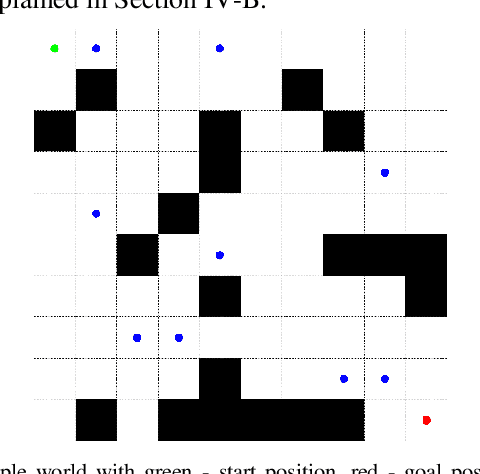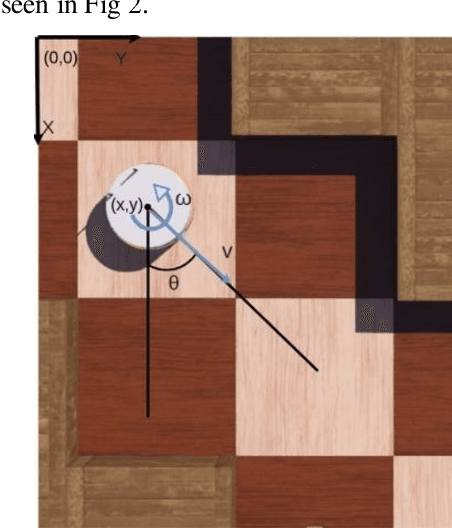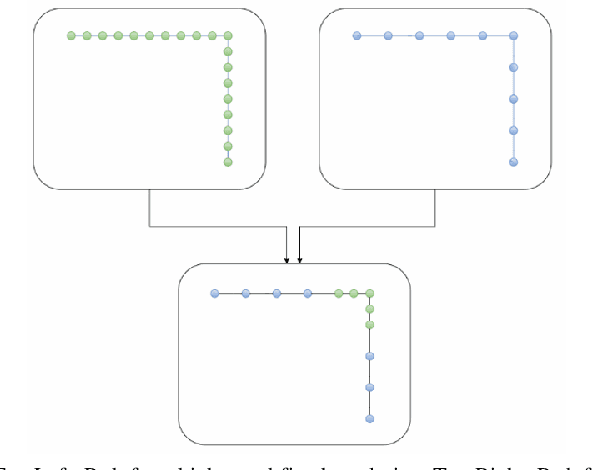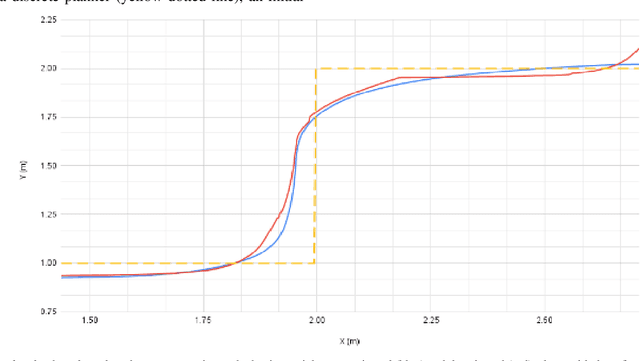Multiple Waypoint Navigation in Unknown Indoor Environments
Paper and Code
Sep 18, 2022



Indoor motion planning focuses on solving the problem of navigating an agent through a cluttered environment. To date, quite a lot of work has been done in this field, but these methods often fail to find the optimal balance between computationally inexpensive online path planning, and optimality of the path. Along with this, these works often prove optimality for single-start single-goal worlds. To address these challenges, we present a multiple waypoint path planner and controller stack for navigation in unknown indoor environments where waypoints include the goal along with the intermediary points that the robot must traverse before reaching the goal. Our approach makes use of a global planner (to find the next best waypoint at any instant), a local planner (to plan the path to a specific waypoint), and an adaptive Model Predictive Control strategy (for robust system control and faster maneuvers). We evaluate our algorithm on a set of randomly generated obstacle maps, intermediate waypoints, and start-goal pairs, with results indicating a significant reduction in computational costs, with high accuracies and robust control.
 Add to Chrome
Add to Chrome Add to Firefox
Add to Firefox Add to Edge
Add to Edge